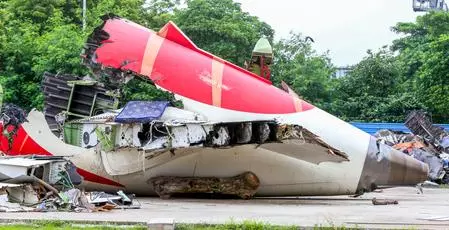
US NTSB chief cautions against speculation on Air India crash
text_fieldsJennifer Homendy, the chief of the US National Transportation Safety Board (NTSB), has urged caution regarding the investigation into the Air India Flight 171 crash, warning that forming early conclusions would be inappropriate.
Responding to emerging media stories that suggest the pilot may have unintentionally toggled vital fuel switches, she posted on X that such reporting was speculative and premature. Although she did not mention specific news outlets, Homendy emphasised that inquiries of this scale require time and thorough analysis, TNIE reported.
The tragic crash, which took place on June 12 and resulted in 260 fatalities, remains under investigation by India’s Aircraft Accident Investigation Bureau (AAIB) with support from the NTSB. Both Air India’s CEO, Campbell Wilson, and the AAIB have similarly advised against drawing hasty conclusions while the inquiry is still active.
Investigators continue to probe how the Boeing 787 Dreamliner lost engine power shortly after takeoff.
Preliminary findings from the Aircraft Accident Investigation Bureau (AAIB) suggest that shortly after Air India Flight 171 became airborne, both fuel control switches were moved to the "cutoff" position, cutting off fuel supply to the engines.
Although the switches were turned back on within about 10 seconds, it was reportedly too late to regain control of the aircraft.
The cockpit voice recorder revealed a key moment between the pilots, where First Officer Clive Kunder was heard questioning Captain Sumeet Sabharwal about why the switches had been moved.
The captain, according to the recording, denied making the change. Investigators are now examining whether this switch movement was accidental, intentional, or possibly the result of a technical issue.
So far, no mechanical defects have been found in either the Boeing 787 aircraft or its GE Aerospace engines. However, India’s Directorate General of Civil Aviation (DGCA) has ordered precautionary inspections of the fuel switch systems in all Boeing 737 and 787 aircraft currently in service in the country.
While the AAIB has disclosed these early findings, officials note that a conclusive report outlining the cause of the crash and any safety recommendations may take a year or more to complete.












